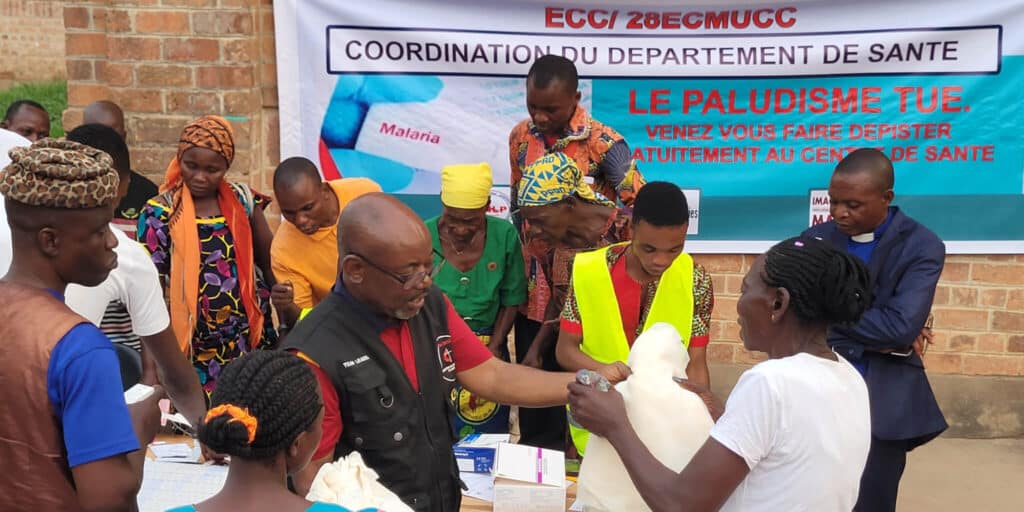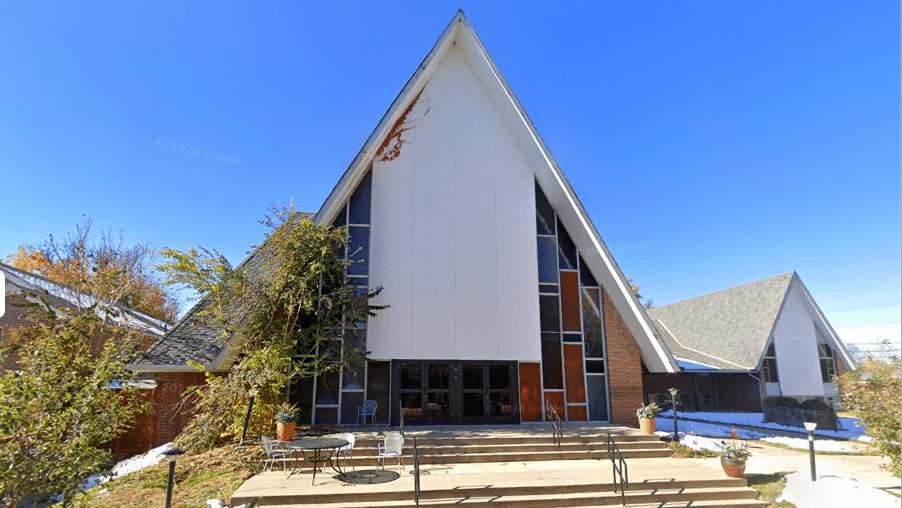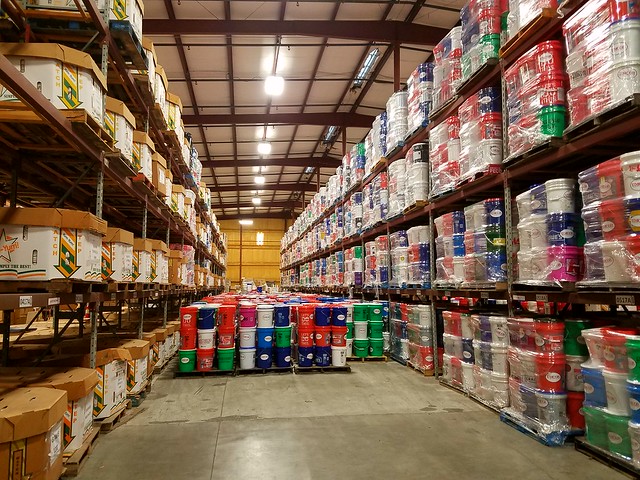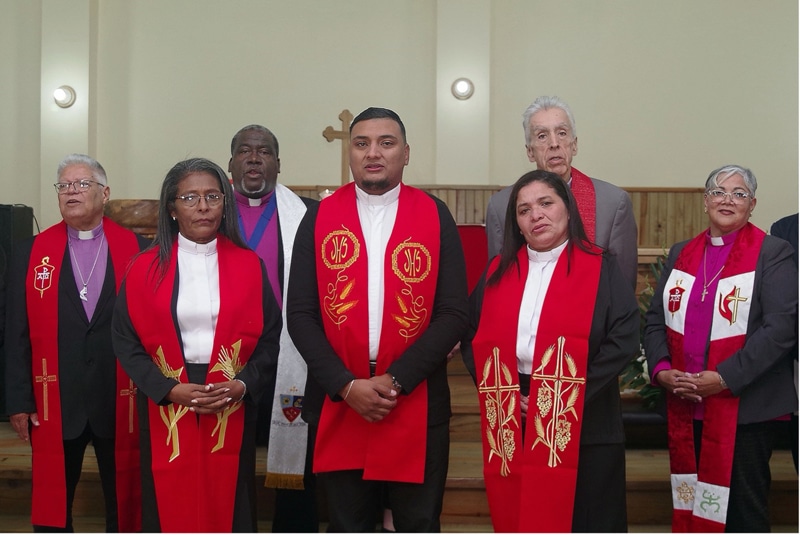ATLANTA — At just 11 years old, Mwamba, living in the village of Nganza in Tshikaji, Central Congo, already carried a great burden. His parents died in a train accident, and he lived with extended family and sometimes on his own. He was often so sick he couldn’t attend school or work to earn a little more income.
Like many children in Africa, he was being repeatedly infected with the malaria parasite through mosquito bites, but he didn’t know that. The health facility nearest to his home treated him with a blood transfusion, which made him feel better for a while, but the sickness always came back. Then he was directed by other community members to try the Nganza United Methodist Health Center, where he could get medication.
“I received free treatment at the Nganza Methodist Health Center,” Mwamba said to an evaluator at the center. “It’s been more than three months since I’ve had severe malaria. I follow the lessons on malaria prevention from the center and I use the mosquito net every night.”
Mwamba has been able to attend school again and resume his daily activities. He is now serious about avoiding malaria altogether, because now he knows how to do it.
Mwamba was just one of more than 40,000 people treated for malaria in 2022 by United Methodist health facilities and smaller clinics of three annual conferences in Central Congo. In addition to giving health and prevention information to patients, the Central Congo UMC Health Board also invested in information campaigns that reached many small communities.
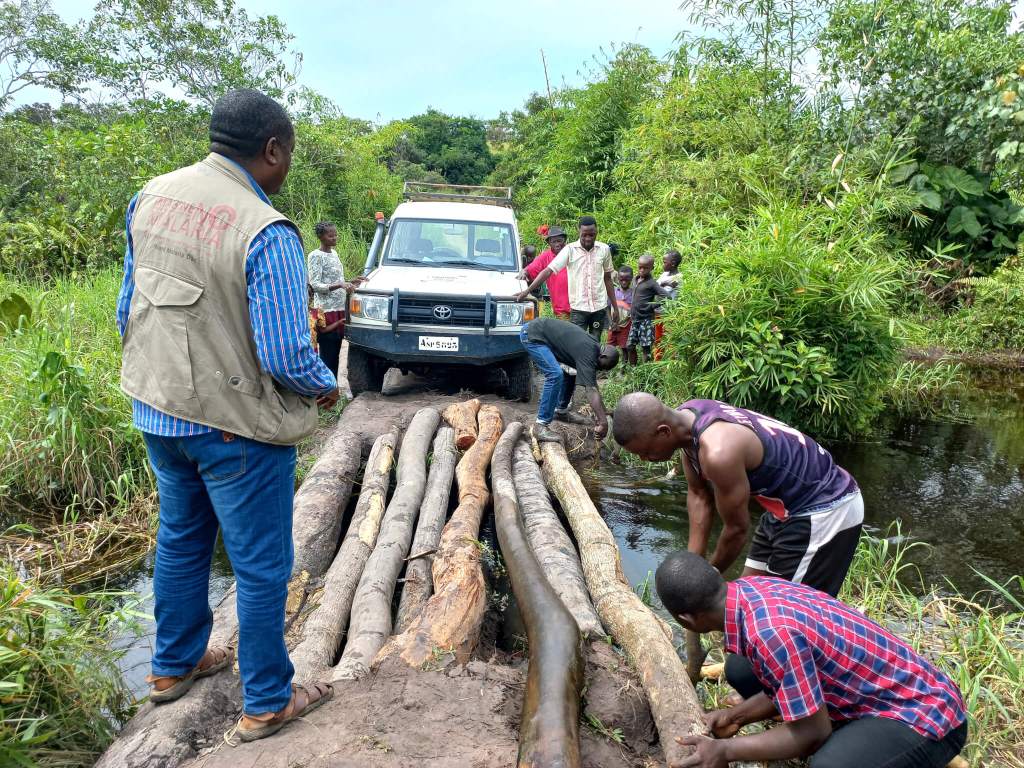
Identifying malaria symptoms and when to seek treatment at a clinic is a primary message sent out through as many community networks and channels as possible. This effort has saved countless lives.
Getting to “zero” requires everyone’s participation
Roland Fernandes, general secretary for Global Ministries and the United Methodist Committee on Relief (UMCOR), noted that the theme chosen by the World Health Organization for World Malaria Day this year, “Zero malaria,” stresses the importance of reaching marginalized populations with the tools and strategies available to reduce and eliminate malaria.
“United Methodists have worked for decades with UMCOR and Global Health to reach these populations through United Methodist health clinics across the continent,” he said. “Today, we support the African UMC health boards as they provide medicines, health education and successful awareness-raising campaigns with community leaders, and prevention strategies such as net distributions and environmental cleanup to reach more people every year. This basic and fundamental community work through faith communities, health facilities, local governments and schools is the means to finally end the suffering caused by this treatable and preventable disease.”
Today, with support and encouragement from Global Ministries, UMC health boards have learned to seek partners beyond United Methodist networks to take advantage of opportunities offered by their government health programs, other nongovernmental organizations, local community efforts and other faith groups. Partnership increases their ability to deliver better health services and share critical prevention and treatment information.
In 2022, the Nigeria UMC Health Board and the United Methodist Church in Nigeria Rural Health Program participated in a mass insecticide-treated net distribution and education campaign in 10 states that included partners such as Catholic Relief Services, local and state government organizations, and major funding from the Global Fund to Fight AIDS, Tuberculosis and Malaria, and USAID. A total of 41.5 million nets were distributed through this campaign.
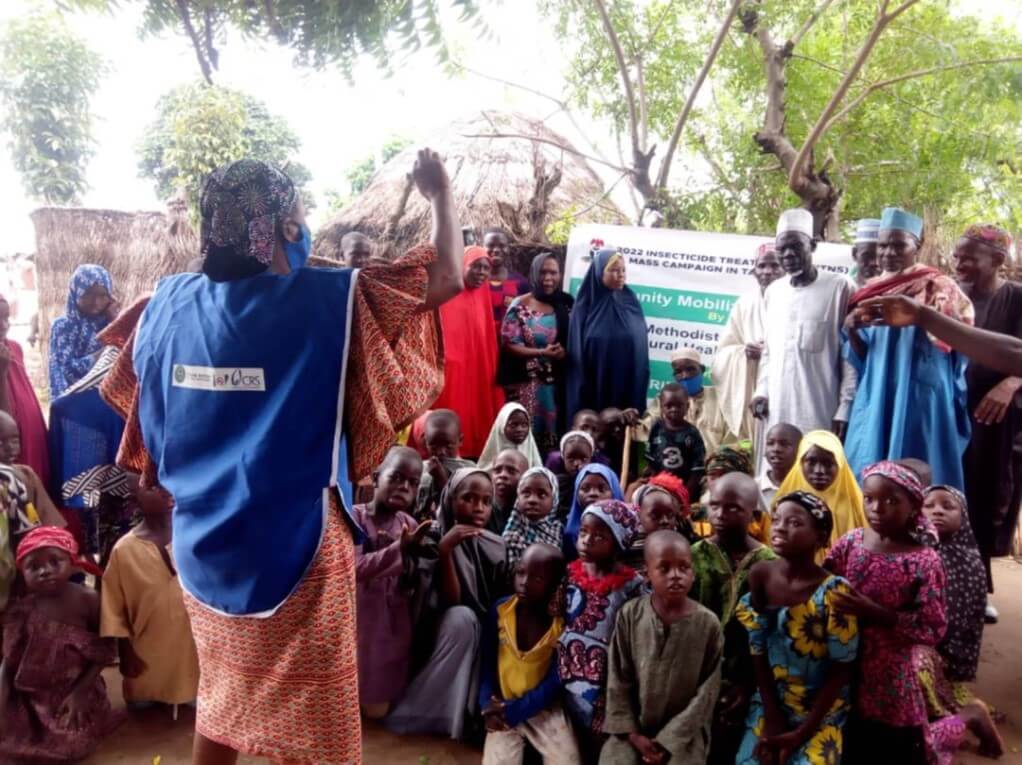
The UMC Nigeria Rural Health Program was responsible for campaign activities in the 11 wards of the Karim Lamido community, conducting orientation meetings with community leaders, religious leaders, students, teachers and union leaders. The team mobilized to encourage community members to register for the campaign and net distribution, meeting with various community leaders to help them actively support the campaign. The UMC program also provided orientation to schools. The campaign included radio and television media.
An Imagine No Malaria grant from Global Health supported the UMC Health Board in Nigeria to supply medicines for treatment, diagnostic needs and bed nets as well as educational materials to UMC rural clinics.
In certain rural areas of Nigeria, malaria symptoms are confused with other illnesses or attributed to curses that must be removed from family members. This affects young children adversely, as valuable treatment time slips away. Often mothers arrive with children who are already experiencing severe malaria symptoms, unable to eat, with very high fevers and dehydration. If left untreated, malaria would take the children’s lives.
But the information campaigns have reached people, and some are arriving at the clinics for treatment. A child age 9 was brought to Gwandum clinic by his mother, unconscious, in the severe stages of the disease. He was tested and diagnosed at this UMC maternity center and received medication. “I didn’t believe my child could come back to life like this,” his mother said. Injections revived her son after a few days, and she carefully followed up with home treatment of oral medication she received. She said this was much more effective than the medication she had bought at market.
A lifetime of benefits
Since 2021, the UMC Health Board of Burundi has partnered with 20 different local schools to develop a successful model of antimalaria clubs, particularly in the areas where the two UMC medical centers operate, Kayero and Murore. Groups of clergy and other church leaders were also trained, as well as staff of both hospitals, but as Dr. Aloys Nyabenda, the Burundi Annual Conference Health Board coordinator noted, “children are a source of change in a household.”
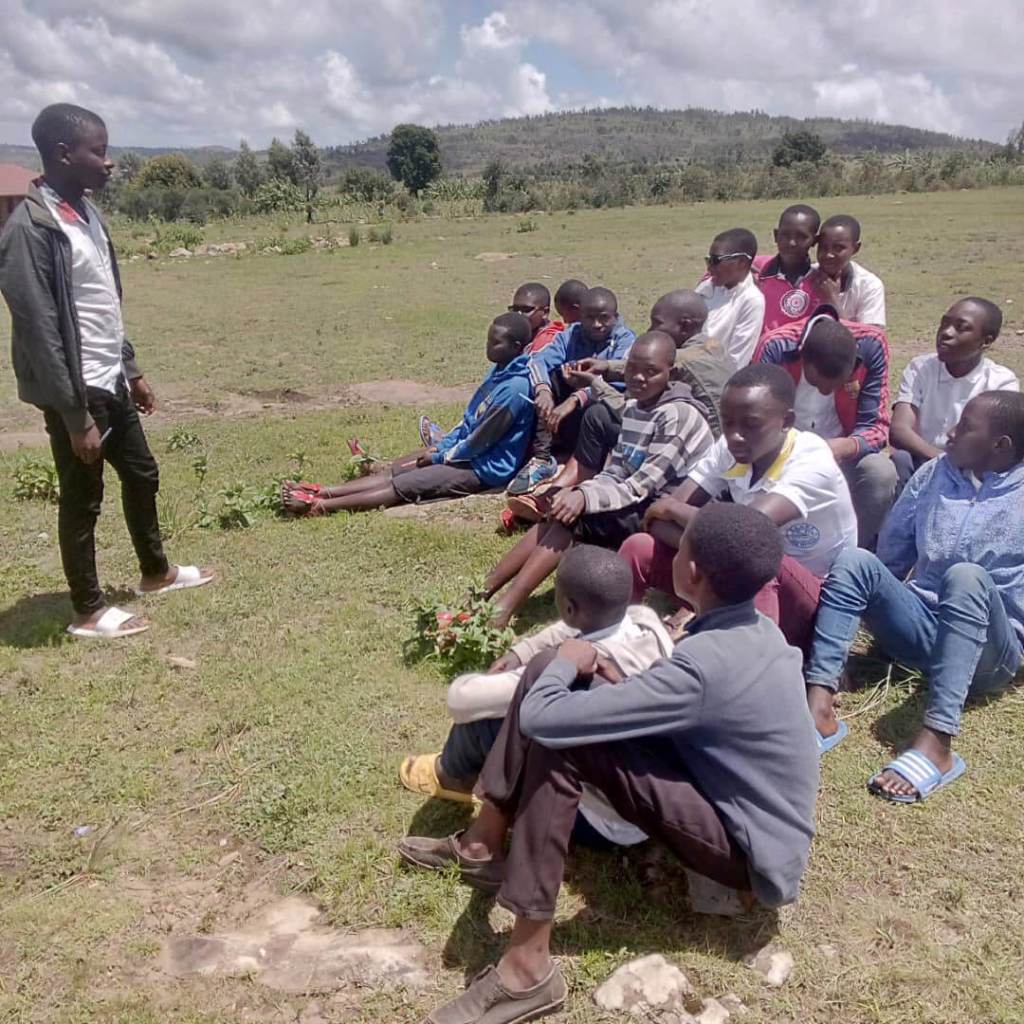
The work extended beyond Methodist schools to public schools, which partnered by providing classroom space, organization and a teacher-coach for each club, as well as participation by all the principals of the schools involved. In addition to learning about disease, the clubs helped children and youth understand how to clean up the environment around houses and in their communities to decrease favorable insect breeding sites.
“Putting this knowledge into practice requires repetition over and over again, and that is what we are doing,” confirmed Nyabenda. “By ‘Zero malaria,’ we mean the commitment to mobilize and empower communities to take ownership of the fight against malaria. We mean also the availability of all the means needed to treat and prevent against malaria.”
Christie R. House is a consultant writer and editor with Global Ministries and UMCOR.
Global Health
Methodism’s focus on health as a part of mission dates back to the 19th and 20th centuries when missionaries expanded the options for health care in underserved communities. Through United Methodist conferences and health boards, Global Ministries works to strengthen whole networks of health responses, from revitalization of facilities and staff training to building better water sources, developing sanitation facilities and promoting nutrition. Global Health concentrates on eradicating preventable diseases, such as malaria, HIV and AIDS, and COVID-19, and supporting the most vulnerable populations, including mothers, newborns and children.
Make a gift to Imagine No Malaria to assist the “Zero malaria” efforts of African health boards and facilities.
